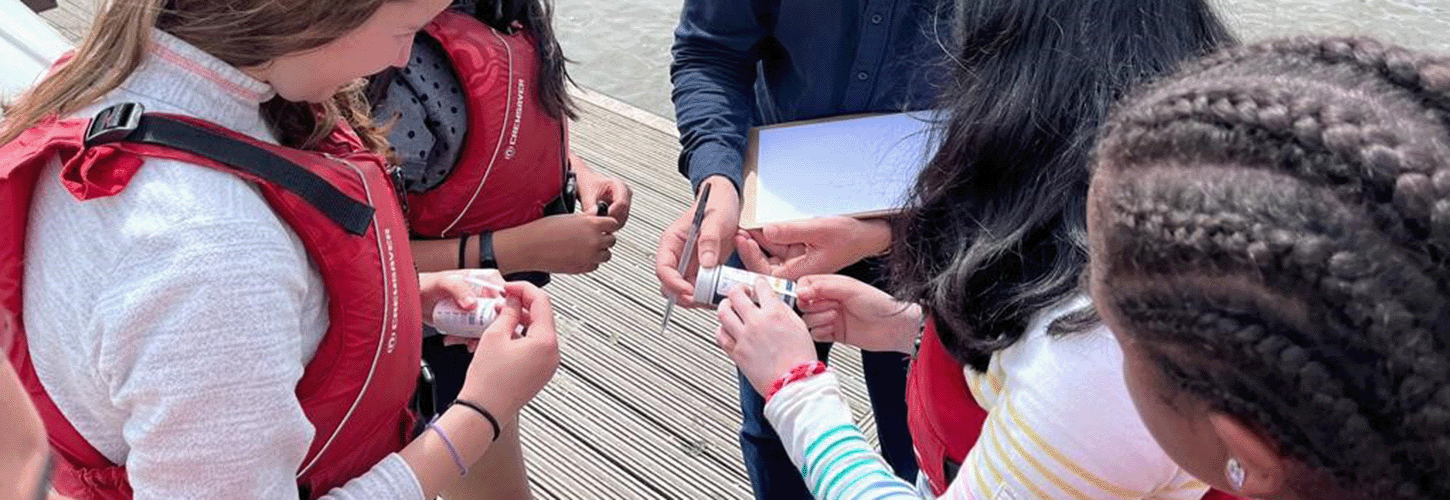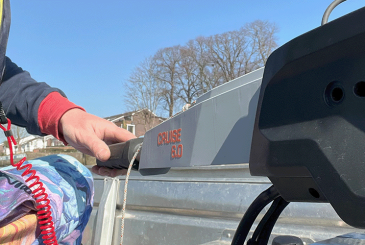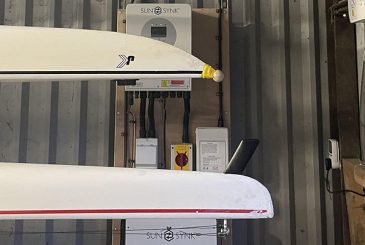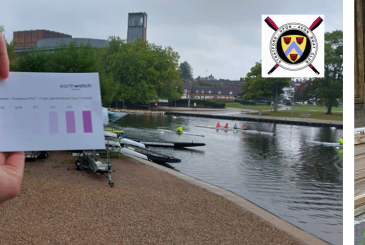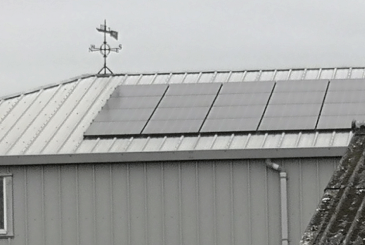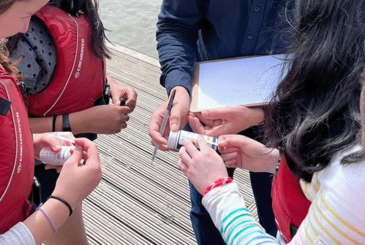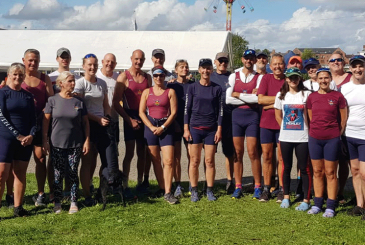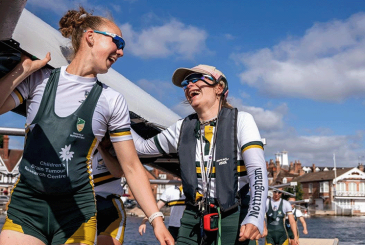Rowing clubs are literally ideally placed to contribute to citizen science project involved in water testing. And with clubs being full of informed and passionate people, who want to row on clean water, it’s not surprising that parts of the rowing community are enthusiastically contributing to show authorities what’s really happening under our boats.
Monmouth RC
In 2021, Monmouth RC joined a citizen science river monitoring project on the River Wye, where they row.
Since then, they have regularly tested the water quality at three locations – the club, and above and below a discharge pipe at a sewage treatment works. They record phosphate concentration, temperature, PH and dissolved solids. The level of phosphates is the most critical of these since it is responsible for the algal blooms that have devastated wildlife in the river. Other local groups also test for E.coli, which together with phosphates is a clear indication of sewage pollution. This is often found below the sewage treatment works.
A club member explains, “The most obvious conclusion that they could draw from the results is that there is a serious problem with the sewage treatment works. The pipe is a storm overflow and should only be discharging during times of extreme rainfall, but the results would suggest that that is not the case. The testing at the club is valuable in highlighting the difference between upstream and downstream of the outfall.
“The data also show that when phosphate levels are below target they are often at 0 or thereabouts – but when they are above the target they are substantially above the target. This points to the nature of the pollution being events rather than consistent, regular contamination. Events could include high rainfall leading to run off events from fields as well as discharges from both combined sewers or storm overflows. Pollution incidents like this cause catastrophic damage to ecosystems even if they pass through quickly.
This regular monitoring is really important in highlighting and identifying this. None of the authorities are testing sufficiently to be able to identify short lived pollution events, and if policy makers look only at average figures they are missing important evidence.”
The club is one of around 20 organisations working with River Action on their campaign to ‘save the River Wye‘.
Fulham Reach BC
Fulham Reach BC is taking a holistic environmental approach, spanning water quality, pollution control, sustainable operations, and habitat restoration. This showcases their dedication to being a positive environmental role model to everyone who rows there, and contributes to the local community.
A key part of the club’s environmental impact work involves collaborating with FreshWater Watch to conduct citizen science water quality testing. This data is published on FreshWater Watch’s website – along with thousands of other data sets – helping to build up a detailed picture of the state of the UK’s rivers.
Stratford upon Avon BC
The club recently formed a working group to examine ways in which they can become more sustainable. First on the agenda were cleaning products. Many standard washing up liquids state on their labels that they are or can be harmful to aquatic life, so the club quickly stopped using them. The working group carried out a cost evaluation of environmental formulas, and decided the best option was to source a refillable five litre container from their local ‘Zero’ store. This option not only reduces single-use plastic, but also supports a local business that shares the clubs’ ambition to reduce waste and harmful chemicals. The environmentally friendly washing up liquid, will be reserved for kitchen use – boats will be washed with water only.
The EU Ecolabel certification is a useful indicator that a washing up liquid or cleaning product meets high standards when it comes to limits on harmful chemicals. Two UK brands that have the EU Ecolabel are Delphis and Clara.
Please let us know if your club is involved with water quality testing too!


